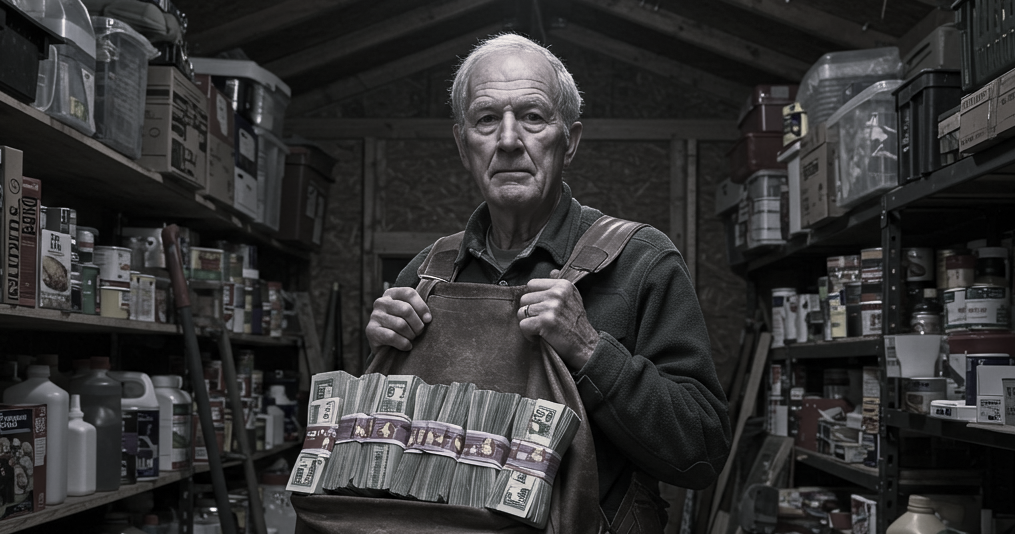How Financial Literacy Skills Can Make or Break Your Survival Plan

In the world of prepping, we often focus on tangible essentials: food stockpiles, water purification, self-defense, and off-grid living. However, one critical area often overlooked is financial literacy skills. In today’s volatile economy, understanding and managing your finances is as vital to survival as any physical preparation. The life skills we need as preppers are so much more than many of us imagine.
Why Financial Literacy Skills Are Essential for Preppers
Financial literacy involves understanding how money works—budgeting, saving, investing, and managing debt. For preppers, these skills are crucial for several reasons:
Resource Allocation
Effective budgeting ensures you can invest in necessary supplies without compromising other financial obligations. Without a clear understanding of your income, expenses, and financial goals, it becomes all too easy to either overspend or allocate resources inefficiently.
Prepping gear can be expensive, and financial discipline ensures you get what you truly need without wasting money on flashy but unnecessary gadgets. Smart resource allocation also means knowing when to buy in bulk, taking advantage of discounts, and avoiding impulse purchases that don’t serve your preparedness goals.
Debt Management
Reducing or eliminating debt increases financial stability, allowing for more flexibility in emergencies. Being in debt during a crisis can be a huge liability. Creditors don’t stop collecting just because SHTF. High-interest loans and credit card debt can drain your monthly budget, limiting the funds available for prepping.
Learning how to manage or eliminate these debts means fewer financial burdens when disaster strikes. It also allows you to redirect money toward building tangible assets, like tools, food storage, and skills training. Remember: freedom from debt is a form of freedom.
Emergency Funds
Building a financial cushion prepares you for unexpected expenses, reducing the need to liquidate assets or incur debt during crises. Emergencies don’t always come in the form of natural disasters or societal collapse. Sometimes it’s a job loss, a medical bill, or a sudden home repair.
Related: 50 Emergency Items To Always Have In The House
Having an emergency fund means you won’t have to sell off your food stockpile or barter away critical supplies to handle short-term problems. It’s your first line of financial defense, allowing you to stay on track with your long-term prepping goals even when life throws you a curveball.
Investment Knowledge
Understanding investments can help grow your resources, providing more options for preparedness. Investing wisely doesn’t mean chasing risky stocks or get-rich-quick schemes. It means having a long-term vision of financial growth and stability. Investments in precious metals, land, or diversified portfolios can provide not only security but also increase your buying power over time.
For preppers, this might also mean investing in physical goods or commodities that will hold value during a collapse. A solid understanding of markets and inflation can help you protect your purchasing power and plan strategically.
Building Financial Resilience: A Step-by-Step Guide
Create a Budget
Start by tracking your income and expenses. Identify areas where you can cut back and allocate those funds toward your prepping goals. A budget isn’t just about restriction—it’s about making sure your money works for you. Track every dollar you spend for a month to understand where your money is really going. Are you eating out too often? Paying for subscriptions you don’t use?
Small leaks in your budget can add up fast. Reallocating those funds toward your prepping—such as buying long-term food supplies, installing solar panels, or taking survival courses—can significantly improve your overall readiness.
Establish an Emergency Fund
Aim to save at least three to six months’ worth of living expenses. This fund acts as a financial buffer during unforeseen events like job loss or medical emergencies. To build this fund, start small. Save a portion of every paycheck, even if it’s just $20.
==> Learn How To Get FREE Hot Running Water [VIDEO]
Keep your emergency fund in a high-yield savings account or somewhere easily accessible but separate from your day-to-day banking. This isn’t money for vacations or upgrades—it’s your fallback. When the economy takes a hit, or personal tragedy strikes, your emergency fund buys you time and peace of mind.
Manage and Eliminate Debt
High-interest debts can be a significant burden. Focus on paying off debts systematically, starting with those with the highest interest rates. The snowball and avalanche methods are two popular strategies: one focuses on paying off the smallest debts first for morale boosts, the other on paying off the highest interest debts first to save money long-term.
Choose what works best for you, but stay consistent. Eliminating debt frees up future income, reduces stress, and makes you less vulnerable to financial collapse. When the economy tanks, those without debt will have a significant advantage.
Diversify Income Streams
Consider developing multiple income sources, such as side businesses or freelance work. Diversified income can provide financial stability if one source is disrupted. If you lose your job, a side hustle could be your lifeline. Even better, make those income streams prepper-friendly: sell homemade goods, offer repair services, teach survival skills, or grow produce to sell.
These ventures not only provide cash but also reinforce your prepping lifestyle. In a post-collapse scenario, these same skills could become barter currency. The more ways you can earn or trade, the more resilient you become.
Invest Wisely
Educate yourself on different investment options, including stocks, bonds, and real estate. Diversifying your investments can protect your assets against market volatility. For preppers, this also means thinking beyond Wall Street. Investing in tangible items—such as land, livestock, tools, and off-grid technology—can provide both immediate and long-term value.
Related: This Is What You Should Buy in 2025
Consider inflation-resistant investments like precious metals or even collectibles with barter potential. Your investment strategy should align with your preparedness goals, focusing on both security and utility in a variety of economic conditions.
Integrating Financial Literacy into Your Prepping Strategy
Financial preparedness should be an integral part of your overall survival plan. By mastering financial literacy skills, you ensure that you’re not only physically prepared but also financially resilient. This dual approach enhances your ability to withstand and recover from emergencies. Money problems are one of the biggest stressors during a crisis.
When you have control over your finances, you have more options, less panic, and better judgment. Just as you wouldn’t go into the woods without a compass or fire starter, you shouldn’t face the future without a solid financial foundation.
Financial Literacy Skills Matter!
Incorporating financial literacy into your prepping strategy is not just wise—it’s essential. By understanding and managing your finances effectively, you enhance your overall preparedness, ensuring that you’re ready for whatever challenges come your way. Start today by evaluating your financial situation, setting clear goals, and taking actionable steps toward financial resilience.
It doesn’t matter if you’re just getting started or are years into prepping—improving your financial literacy skills will always be a high-value investment. Because when SHTF, the prepared won’t just survive—they’ll adapt and thrive.
You may also like:
 The Best States to Outlive an Economic Depression
The Best States to Outlive an Economic Depression
Do You Make These Fatal Mistakes In A Crisis? (Video)
Life Skills For Kids – Teaching Fundamental Skills For Your Child To Succeed In Life
Bartering Items You Need to Stockpile for the Next Financial Crash
Worst States to Be in When the Economy Collapses
Read the full article here







